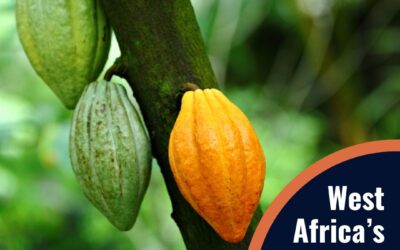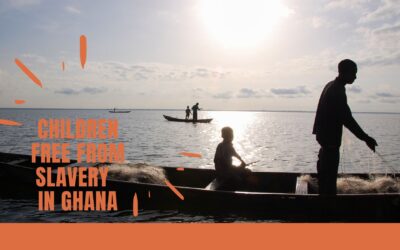Could you answer this question: Which country was the first to ratify the U.N. Convention on the Rights of the Child, a treaty establishing civil, political, economic, social, health and cultural rights of children?
Many middle school kids in Ghana know the answer. That’s because it’s one of the questions in a school quiz competition on slavery.
Also, it’s because the answer is Ghana!
I was lucky enough to watch seven schools compete in the quiz semifinals late last year. The competition was organized by one of our frontline partners in Ghana, the Social Support Foundation (SSF).
SSF spent months visiting schools around Obuasi, an area where child labor and sexual exploitation are rampant in the informal gold mining sector. Children learned about Ghanaian and international laws on slavery, different forms of slavery, root causes and how to address them.
The information empowers children and parents to know their rights and make smart decisions about their health and education.
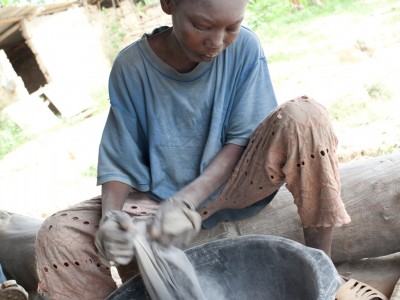
Many children are required to work in Ghana’s informal gold mining industry | Photo: Robin Romano for Free the Slaves
Children in the region are in precarious situations. Many are forced to work in dangerous mines, carrying heavy loads and handling mercury to extract gold from ore. Many more are at high risk of entering the mines.
Young girls who sell food and water in the mines by day often find themselves sexually exploited at night.
“When we go into the schools and talk to them about slavery and the rights they have as children, we find so many that are in terrible situations and want to leave,” SSF Program Coordinator Joel Boakye Mensah explained to me.
“We counsel them individually, and encourage them to form support groups,” Joel said.
The school quiz competitions allow children to show what they have learned in an exciting and friendly atmosphere. I was very impressed with their level of knowledge.
They knew the definition of illegal child labor. They knew why slavery exists. They would shout the answers during the quiz: “Poverty!” “Vulnerability!” They could name the Ghanaian government agencies responsible for responding to and preventing slavery.
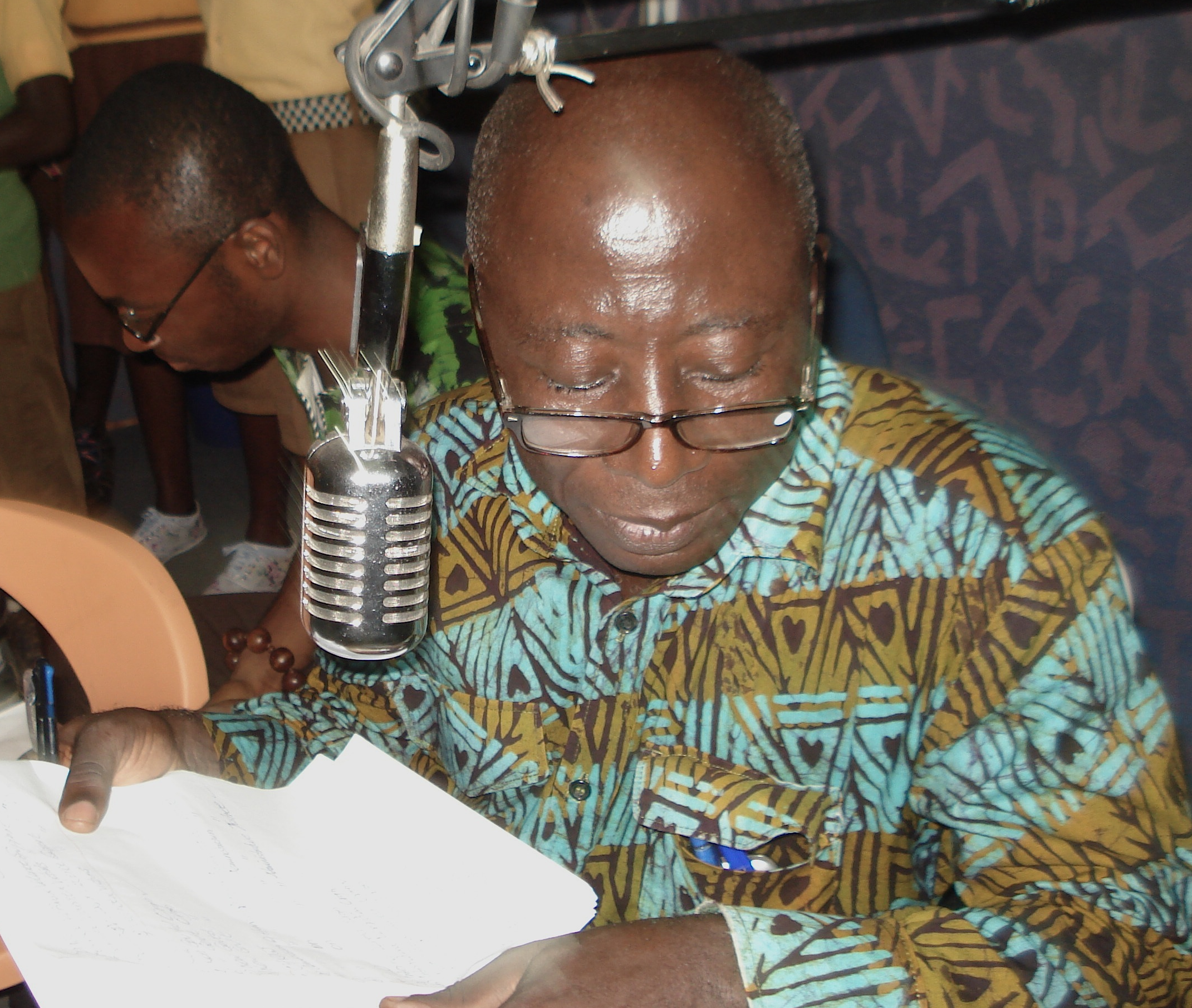
Quizmaster prepares for championship broadcast on radio | SSF photo
I was honored to present students with prizes at the end of the semifinals.
But the competition didn’t end there. Six schools went on to compete in a championship round, broadcast by radio station Shaft FM.
Joel emphasized the radio program’s success, noting the show reached Ghanaian residents in 11 districts.
Many listeners called to say they appreciated how informative the program was.
You can learn more about FTS projects in Ghana on our website.
You can also find factsheets, teacher’s guides and historical timelines to create your own quizzes for students.
And a big shout out to the winner of the Child Labor and Slavery Awareness Quiz Championship: Adumanu Junior High School. Congratulations!
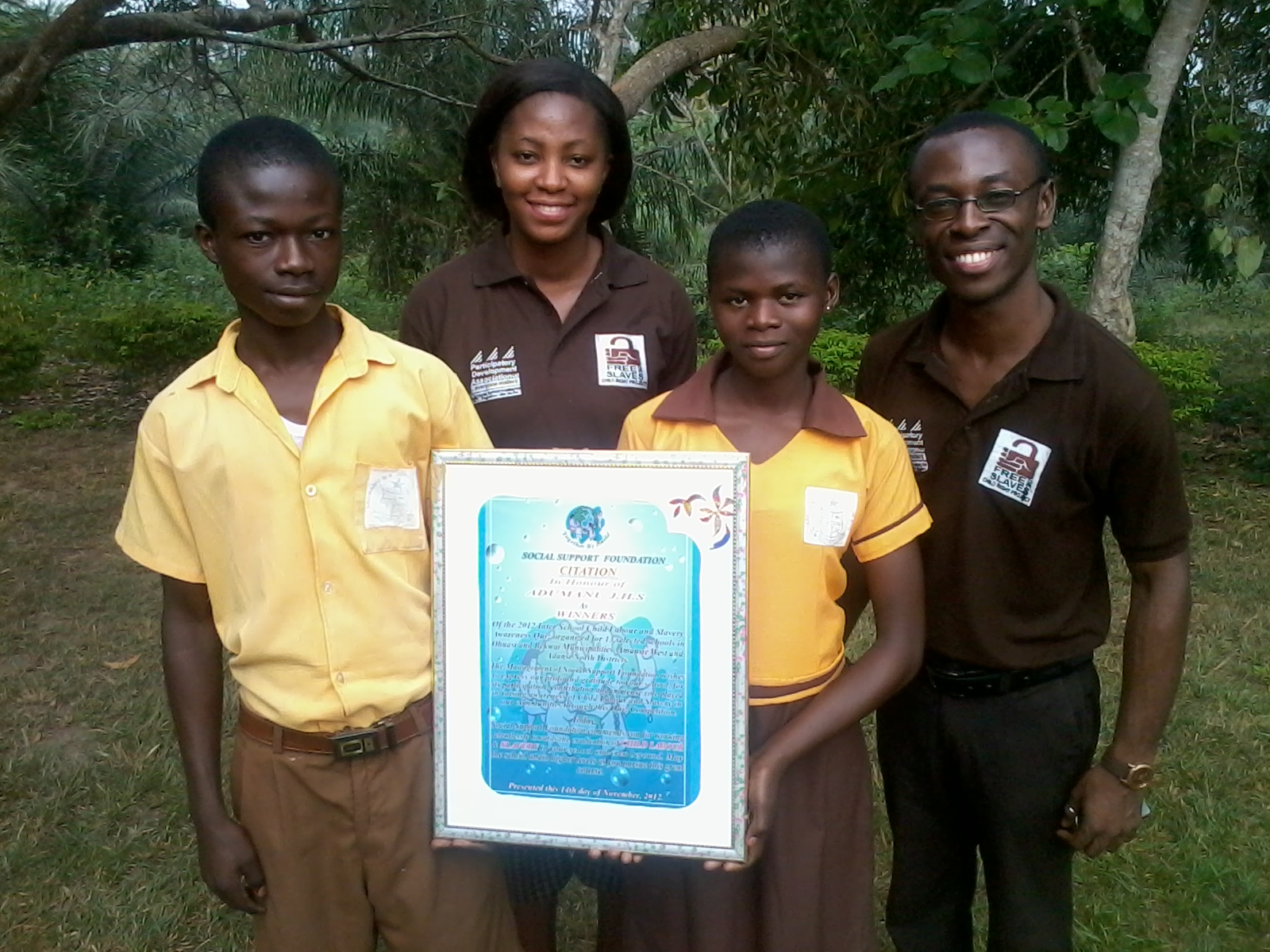
SSF staff with students from the winning school | SSF photo

